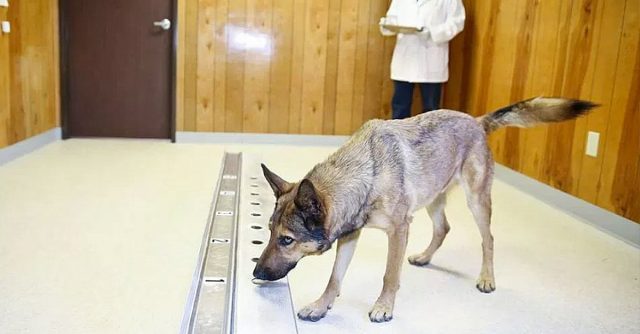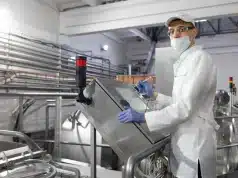Researchers at BioScentDx found that dogs’ highly developed sense of smell is so good that they can sniff out cancer in blood with 97% accuracy.
Dogs’ immaculate sense of smell, which is about 10.000 times more accurate than people’s, have proved to be highly sensitive to the scents we humans cannot perceive.
A new study that was presented at the American Society for Biochemistry and Molecular Biology annual meeting during the 2019 conference in Experimental biology discovered that blood sniffing dogs may be the new key frontiers in cancer detection. Namely, a trained lab dog can smell cancer on blood samples with 97% accuracy.
Heather Junqueira, the lead author of the study, said: “Although there is currently no cure for cancer, early detection offers the best hope of survival. A highly sensitive test for detecting cancer could potentially save thousands of lives and change the way the disease is treated.”
This finding is very important because it paves the way for researching further in finding new cancer-detection tools. One way is by using canine scent detection as a screening method for cancers and the other one is determining the biologic compounds that are detected by dogs and then create cancer-screening tests on the basis of those compounds.
Janqueira and her team of scientists have taught four beagles to make a distinction between healthy blood samples and blood samples with malignant lung cancer at BioScentDx, the lab when the study was carried on. One dog didn’t collaborate, but the rest three dogs have successfully identified cancer infected blood samples with 96.7% accuracy.
Scientists are now testing if dogs are able to smell cancer in the breath condensate of breast cancer patients. They recently launched a breast cancer study in which the patients can donate a sample of their breath for screening by previously trained cancer-sniffing dogs. They next plan to isolate the chemical compounds in the breath samples and discover the origin of the odor. They believe that the dogs would be able to smell the breast cancer and perform well on the smell tests they are going to give them.
“We’ve seen these dogs detect pre-cancerous cells, meaning those at stage 0-1. Our 26 dogs include general cancer dogs and those trained in specific tumor types: currently breast and lung, and soon to be expanded to include prostate, colorectal and melanoma,” said Janqueira.
She says that this test is an affordable and viable supplement to traditional screening methods. It costs only $50 on their website, but she does point out:
“It’s important to note that these screenings aren’t meant to replace a preventative visit to the doctor or diagnostic tests such as yearly MAMMOGRAMS. Although there is currently no cure for cancer, early detection offers the best hope of survival. A highly sensitive test for detecting cancer could potentially save thousands of lives and change the way the disease is treated.”
Who else says that dogs aren’t people’s best friend?





